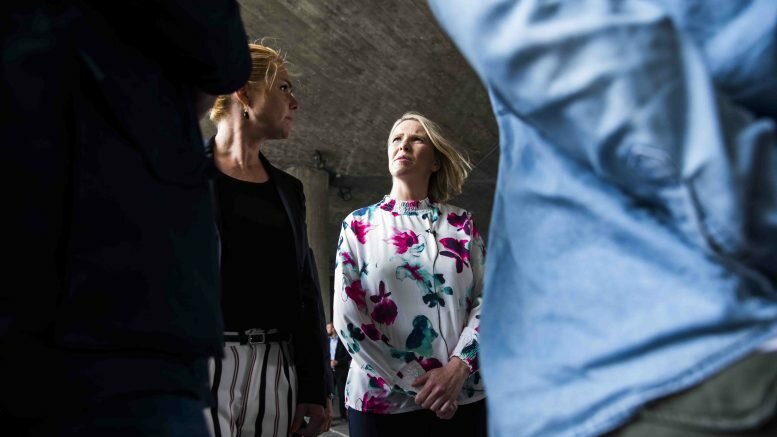Asylum seekers who are in an integration program should be granted access to unpaid work, said immigration and integration minister Sylvi Listhaug (Frp).
On Tuesday she sends a proposal for regulatory change to consultation.
“It’s pointless to have people walking around who have nothing to do,” says Listhaug to NTB.
Applies only to major reception centres
On Tuesday she went to Sana Integration Centre in Larvik to launch the proposal. Larvik municipality is one of five municipalities that has got such super- reception centres. Currently, only asylum seekers in those will receive the offer.
Thus, the proposal covers only about 400 adult asylum seekers.
“That’s because they are likely to stay in Norway. We have no interest in opening up for people who will not be allowed to work, says Listhaug.
The goal is to ensure that people most likely stay in Norway in the future come into working life and are able to support themselves as quickly as possible.
Unpaid
The proposal implies that asylum seekers should be able to have unpaid internship in the private or public sector, or be able to perform some work tasks at the reception where they live.
The work will come in addition to and not in place of the work already done by the salaried staff, according to the proposal.
The purpose of limiting access to work is to prevent the scheme from being misused to cover ‘black work’ , it is suggested.
In addition, it will be easier to check that the workplaces and jobs offered are serious and that the work performed is done within the rules.
Listhaug says at the same time that she will not be surprised if there are reactions to asylum seekers not being paid for the work they do.
– Better than nothing
Norwegian Organization for asylum seekers (NOAS) believes that the proposal is late but good.
“We believe that they must be able to gain access to paid employment faster. But this is better than nothing, says Secretary General Ann-Magrit Austenå to NTB.
“All initiatives that can contribute to a faster connection with working life are good. It is important that people become active and do something meaningful, she emphasizes.
However, a survey from Statistics Norway earlier this summer shows major differences between women and men in terms of integration.
Whilst 70 per cent of men under the age of 30 are in education or work after completion of the introduction program, this applies to only half the women.
“We have taken an important step, namely cutting the cash support for the first five years. But we must continue to work on this. That mothers are integrated is important for their future children, “says Listhaug.
Far behind the EU
At the same time, new figures show that Norway is now amongst the countries in Europe that receive the fewest asylum seekers, according to Aftenposten. On average, EU countries receive three times as many refugees as Norway, in relation to the population.
“I am very pleased that we have as good control as we have now. It enables us to invest resources into the area of integration , “says Listhaug.
“But what does not appear in these figures is that there will be many new people arriving for family reunification. This will be a challenge in the years ahead, she says.
© NTB Scanpix / Norway To





